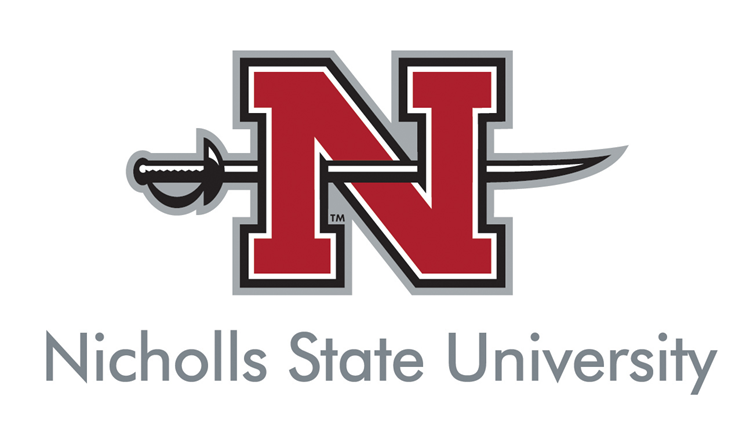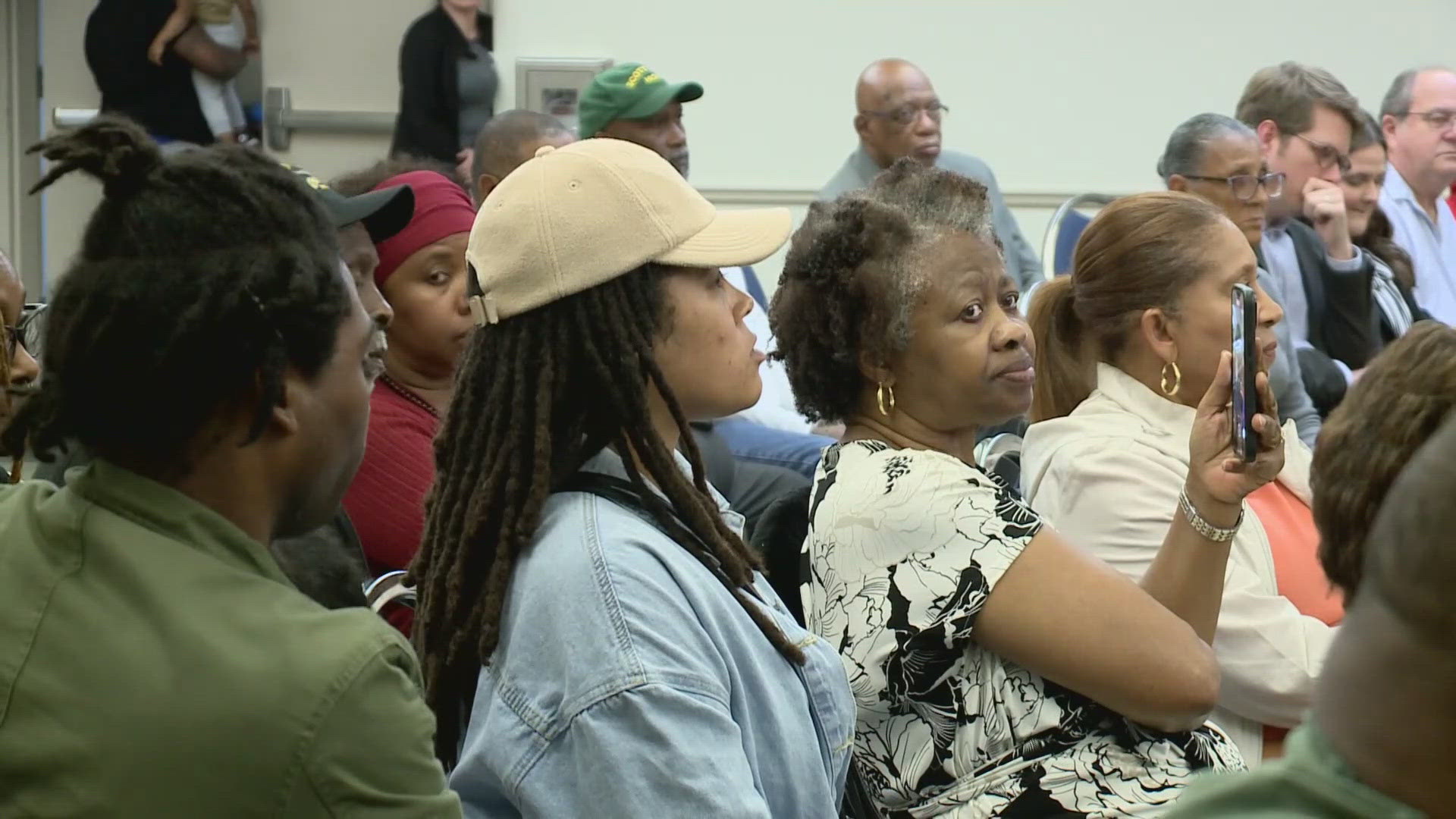THIBODAUX, La. — As a secondary education major, Ciera Eugene spent a lot of time in Nicholls State University’s Polk Hall – named after Confederate Gen. Leonidas Polk.
The alumna recalled that walking through campus surrounded by symbols of a time when African Americans were subjugated felt like she was carrying “a heavy burden.”
To her, the building names were a form of glorification.
“I would have to go into a building that is named after someone who had no regard for my ancestors and people that looked like me,” said Eugene. “It’s just kind of disheartening.”
On a campus where 18 percent of students are black and 30 percent are nonwhite, some are now pushing for a serious conversation about the names of some buildings and streets on campus.
Aside from buildings referencing Confederate generals, every street on Nicholls’ campus is a nod back to the time of slavery.
One year before the university was forced to integrate, the student government association voted in 1962 to name the streets after a plantation or plantation owner in Louisiana.
In April, Nicholls released a draft diversity action plan to collect feedback on 60 proposed recommendations to improve inclusion that a group of students, faculty, staff and alumni compiled over the course of a year.
In the plan, the student working group recommended for the school to formally start discussing the renaming of streets and buildings “associated with plantations and other culturally hurtful associations.”
Since forming March 2018, Nicholls’ new Black Student Union has made this one of its top priorities. In the past few months, its membership has grown to about 70 students.
Student leaders say the Black Student Union itself was created to provide a forum for minority students to have a louder voice than they have in the past.
The historically conservative campus is one of the last four-year public universities in the state without an office or committee specifically dedicated to diversity and inclusion. The formation of a dedicated office was one of the staff’s recommendations in the draft diversity action plan.
Asked what names on campus were the most concerning, Black Student Union President Trang Tran and Vice President Arrington Blanchard chuckled.
“All of them,” they said.
In terms of streets, the pair said only one of the plantations – Acadia – related to Nicholls, as the campus includes a part of its land.
“For the other plantations, some were local, but then others have no correlation to Nicholls State or even Thibodaux,” said Tran.
At least four of the street names – Madewood Drive, Audubon Avenue, Afton Drive and Glenwood Drive – are derived from plantations located in St. Francisville, Baton Rouge or Napoleonville.
The question of whether the names of some buildings and streets are appropriate isn’t new.
Tran and Blanchard said alumni have talked to them about the complaints that have arisen before. But it never rose to the point of demanding action from the administration.
“No one ever formally tried to change it,” said Blanchard.
Eugene, who was one of the founders of the Black Student Union before graduating last year, said she’d heard people talk about the names since she first stepped foot on campus. As a freshman, seniors would tell her that they’d talked about it since they started too.
“This is at least eight to 10 years that people have been talking about it,” she said. “It was just something where people knew what it was and just accepted it rather than start any conflict about it.”
Now, the students say there are two differences: the students have a forum to talk about the issues and an administration interested in listening.
Blanchard, Tran and Eugene said Nicholls President Jay Clune and other administrators have been receptive to their ideas so far.
“Dr. Clune has always made sure he took the initiative to talk to minority students and faculty rather than worrying about what everyone’s thinking,” Eugene said.
Administrators said Clune decided to form the Diversity and Inclusion Task Force charged with creating the draft action plan soon after arriving on campus in January 2018.
Asked why he made inclusion one of his first priorities, Clune pointed to the students, complimenting them on how active they are on campus.
“They deserve to be heard,” he said. “They’re the ones that walk it (campus) more than anyone.”
Clune said the diversity and inclusion plan was one of multiple long-term plans he had the university staff begin to work on, including a new university strategic plan, a facilities master plan and an athletics master plan.
When it comes to renaming the campus’s streets, Clune said he viewed it as Nicholls students reassessing the decision made by students that came before them.
“I would’ve considered the recommendation of the group in 1962, and I will consider the recommendation of the student group in 2019,” he said.
On the draft plan, the target for starting a formal discussion about renaming buildings or streets is by the end of the fall semester.
“This does not addressed renaming,” said Clune. “That’s determined through a process.”
He said that right now they’re in the “listening stage, not in the response stage.”
When buildings like Beauregard and Polk halls were named in 1961, the book “Nicholls State University: The Elkins-Galliano Years, 1948-1983” stated they had to be approved by the state board that governs the school after they were recommended by the then-president of Nicholls. The book was written by retired professor Alfred Delahaye.
Clune said he wanted to be proactive in his approach to discussing how to make campus more inclusive and avoid “knee-jerk reactions” by having a diversity plan.
“I do not think tradition and inclusion are exclusive of one another,” he said. “I think they can going hand in hand.”
Clune declined to provide his own stance on the names of any buildings or streets in an interview on Tuesday. He said he didn’t want it to influence the perceptions of the discussions that committee will have in the future about the issue.
“The president has to be careful to respect the shared governance process,” he said. “You want them to be acknowledged that their time and their input is valuable, and for me to say how I feel right now, it would short-circuit that.”
When it came to the potentially renaming the university, Clune said Nicholls is a brand.
“The school’s name is not up for debate,” he said.
The university is named after Francis T. Nicholls, who served as a Confederate general before becoming a governor and state Supreme Court justice.
In the 1990s, a New Orleans high school named after Francis T. Nicholls purged its ties to the Confederacy and was renamed Frederick Douglass High School. It’s still in operation as a public charter school.
Across the country, universities and cities are reckoning with vestiges of the Confederacy and protesters from both sides of the heritage versus hate debate.
The University of Mississippi’s student government recently voted to recommend the administration remove a Confederate statue from its campus.
Tran and Blanchard said they viewed the discussion of buildings and streets as a starting point.
“I think the university is just trying to cope and figure out what they’re going to do next so it wouldn’t start too much of an uproar,” said Tran.



